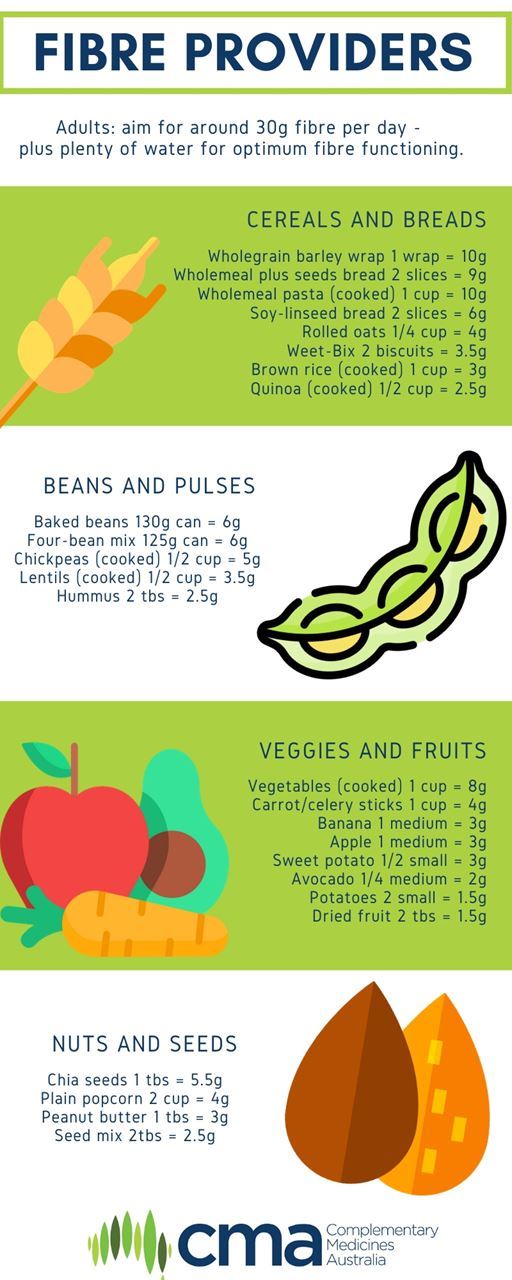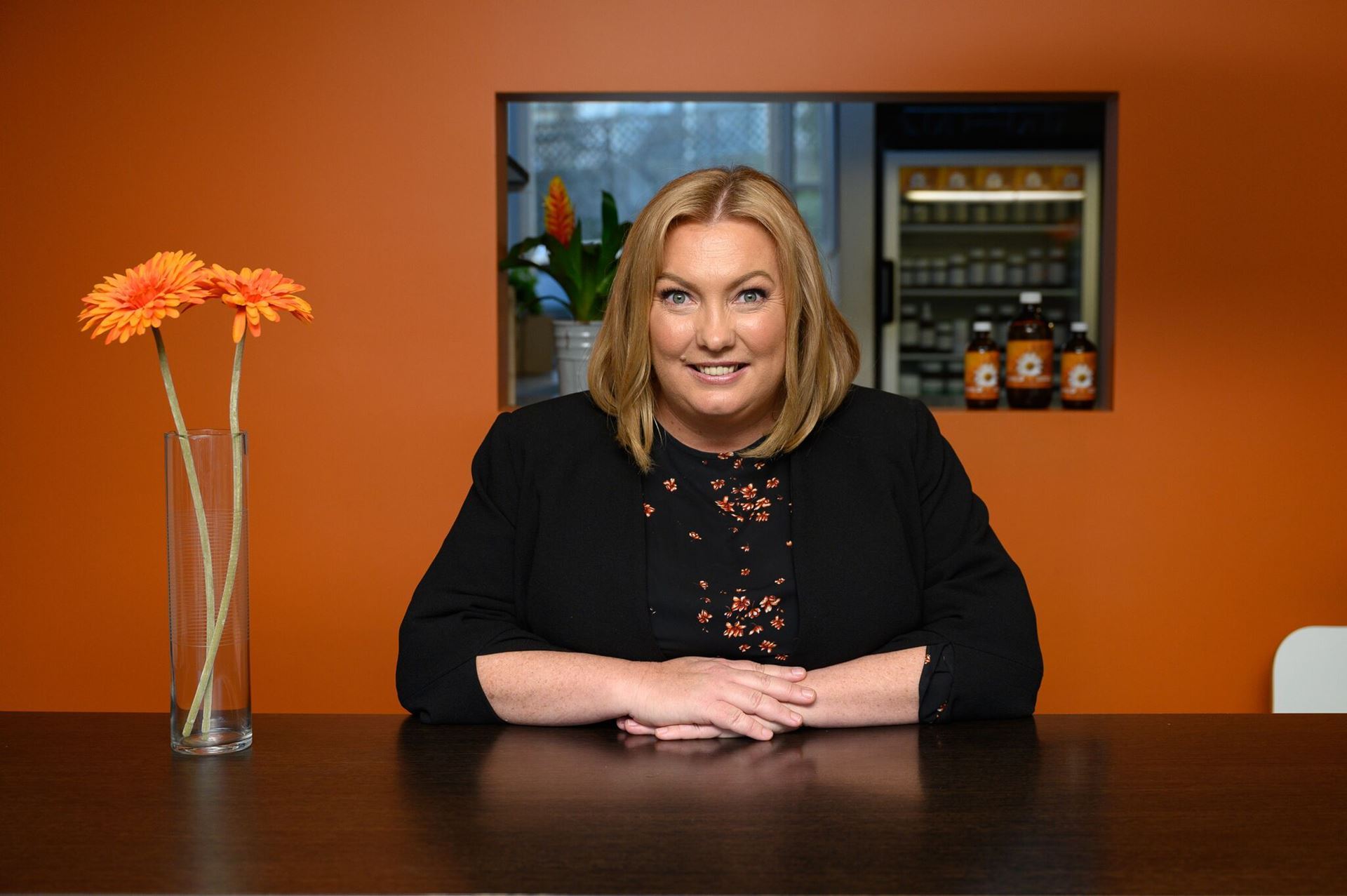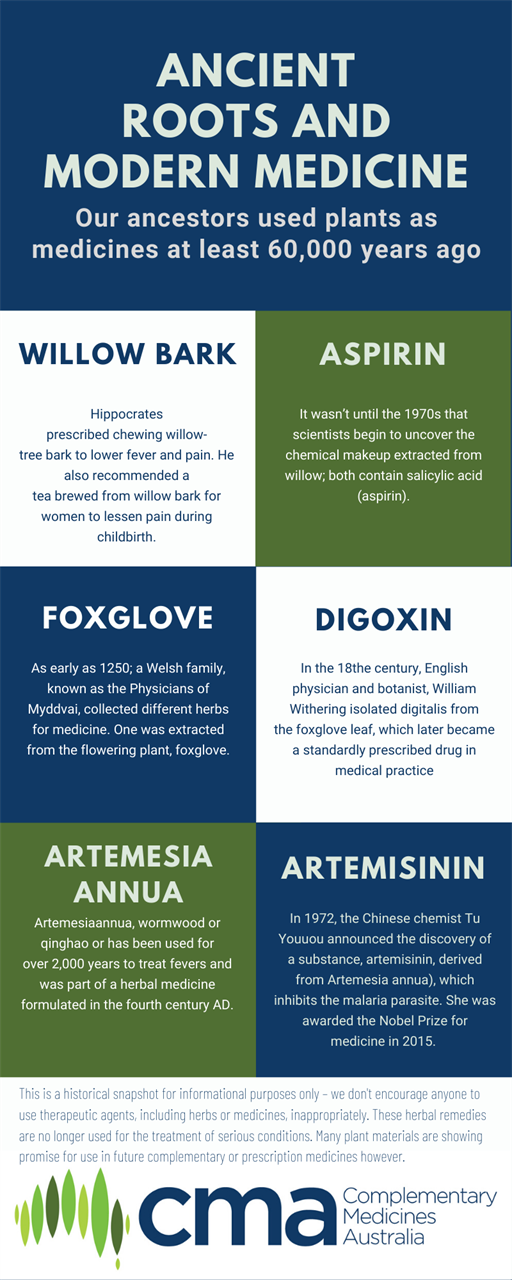|
 |
In the news
Resources
Six herbs and nutrients that support immunity
Herbs and nutrition have been harnessed for their health benefits by people around the world since time began. With the Australian winter nearly upon us, and given the current pandemic, here are some herbs and nutrients that have been widely used to support the immune system, reduce risk of infection and minimise symptoms should an infection occur.

A healthy, varied diet, enough sleep, managing stress, adequate physical activity and not smoking support immunity.
The basics
The cornerstone to good health and to supporting your immune system is enjoying a healthy, varied diet, getting enough sleep, managing stress, getting enough physical activity and not smoking. In addition, several herbs and supplements may also be used to support immunity. Check with your healthcare practitioner before taking supplements and if any symptoms persist.
Because COVID-19 is a novel virus, there are no proven treatments or preventative therapies including supplements, medicines or foods that are known to protect us. Until the virus is better understood, limiting community exposure through social distancing or isolation where appropriate, and practicing good hygiene are vital to limit the spread.
Your immune system
Like other body systems, your immune system is complex. Many cells and tissues make up your defence system from your skin to your gut and even eyelashes and white blood cells. Every area of the body is supported – so you could consider your body as your castle and your immune system as the soldiers that patrol and defend every part of your body.
Keeping your immune system in balance is important at every age and every stage of life. And, traditionally, a number of herbs and nutrients have been used to support the immune system – feeding and supporting your internal soldiers.
1. Astragalus
Native to China, Korea, Mongolia and Russia, the herb Astragalus has been used since the second century AD to support the immune system, and recent study has shown it supports immunity at the cellular level. This herb is an adaptogen which means that it helps to support the body's reaction to stress. Astragalus root extract is traditionally used to promote a healthy immune system, increase resistance to infection and relieve fatigue.
2. Andrographis
Used widely in Ayurvedic medicine and traditional Chinese medicine for its anti-inflammatory properties, Andrographis contains andrographolide, a terpenoid compound shown to have antiviral effects, including against those that cause respiratory infections. When taken at the first sign of cold symptoms, Andrographis may help to prevent a cold from developing with full force. Andrographis may help to ease the symptoms of upper respiratory tract infections. It might also prevent influenza viruses from binding to cells in the body, although more research is needed to understand its effectiveness in treating the flu. It can be used to relieve symptoms of treat mild fever, the common cold and sore throat.
This herb is not recommended for use in pregnancy and breast feeding. There is a small possibility of developing taste disturbances when using Andrographis products so follow the label instructions.
3. Echinacea
Echinacea is a daisy-like plant and has been used by Native Americans for centuries. There are 2 main species used - Echinacea purpurea and Echinacea angustifolia. Various parts of these different Echinacea species are active in different ways; which is why they are frequently used together.
Echinacea supports a healthy immune response when taken at the onset of symptoms. Studies have suggested that certain species improve immune health and may have antiviral effects against several respiratory viruses, including respiratory syncytial virus and rhinoviruses. The antiviral action may be due to the presence of certain polysaccharides that increase the production of infection-fighting white blood cells.
When taken at the first sign of symptoms, Echinacea can relieve symptoms of colds and mild upper respiratory infections and may reduce the duration of cold-related symptoms such as fatigue, body aches and headache.
4. Vitamin D
The sunshine vitamin, vitamin D, is unusual because the major source is sunshine rather than food sources (it is made when the sunlight interacts with a cholesterol-like substance in your skin). Certain groups, particularly those with restricted access to sunlight may be at risk of vitamin D deficiency, which can be medically diagnosed with a simple blood test. Vitamin D is essential to support the health and functioning of your immune system.
This vitamin works by enhancing the pathogen (disease) fighting effects of white blood cells that are part of your immune defence and decreases inflammation, helping to support the immune response.
Being deficient in vitamin D may be associated with an increased risk of upper respiratory tract infections.
Food sources of vitamin D include some mushrooms, oily fish, fortified foods and egg yolks.
5. Zinc
Zinc deficiency affects around 2 billion people worldwide and is very common in older adults. About 30% of older adults may be deficient in zinc. Low levels can increase the risk of infection because this mineral helps support healthy immune system function.
It's important not to overdo it though – too much zinc can interfere with copper absorption. Find zinc in whole grains, oysters, baked beans, chickpeas, and nuts.
6. Vitamin C
The best know nutrient when it comes to your immune system is perhaps Vitamin C. Vitamin C is vital for immune health and may reduce the severity and duration of colds. It encourages the production of white blood cells (lymphocytes and phagocytes), which help protect against infection. It also helps these white blood cells function more effectively while protecting them from damage by potentially harmful molecules, such as free radicals. Free radical damage can negatively affect immune health and is linked to numerous diseases.
Because it is water-soluble, you can't store large amounts so it's important to consume some every day. Good food sources include vegetables and fruits; however if you cook veggies, cook them until just tender in a small amount of water as vitamin C is destroyed by heat and can leach out into the cooking water.
Last word
Remember that although supplements can make a difference to your immune health, they can't replace a healthy lifestyle. If you are unwell, stay at home and following Department guidelines about COVID-19 – see https://bit.ly/3evgvyN
References
https://www.ncbi.nlm.nih.gov/pmc/articles/PMC6268577/
https://www.ncbi.nlm.nih.gov/pmc/articles/PMC4002847
https://www.ncbi.nlm.nih.gov/books/NBK71143/
https://pubmed.ncbi.nlm.nih.gov/25832590/
https://pubmed.ncbi.nlm.nih.gov/25157026/
https://www.ncbi.nlm.nih.gov/pmc/articles/PMC5551541/
Soluble Fibre, Insoluble Fibre, Functions And Where to Find It
June 2020
June is Bowel Cancer Awareness Month which claims the lives of 103 Australians every week (5,375 people a year) - but it's one of the most treatable types of cancer if found early[i]. As well as regular testing, diet is an important factor where it comes to prevention.
Many studies have shown a diet high in fibre can help reduce the risk of developing bowel cancer. This features focuses on fibre – which four out of five Australians don’t consume enough of – and the many benefits of fibre for all-round good health.
Dietary fibre refers to the parts of plant foods that aren’t digested. Although you can’t absorb it – it never leaves your gastrointestinal tract – fibre is vital for good health. Experts recommend around 30g of fibre recommended daily for adults.
Here are six reasons your body needs fibre and easy ways to add more fibre into your diet.

1. It gives your large intestine a workout
Insoluble fibre (the outer shells of seeds, grains, fruits, and vegetables) can be stringy or coarse. The large intestine is a long muscular tube and, like all muscles, it needs exercise. Insoluble fibre draws water to it and softens the stool making waste more comfortable to pass. Keeping things moving helps to prevent conditions such as constipation, haemorrhoids and diverticular disease.
2. It feeds your probiotic bacteria
Resistant starch, although not traditionally thought of as fibre, acts in a similar way. It resists digestion in the small intestine (where most food is digested) and when it enters the large intestine, provides food for gut bacteria. Healthy gut bacteria play a key role in controlling inflammation; too much chronic (long-term) inflammation may predispose people to type 2 diabetes.
Find resistant starch in legumes (peas, beans and lentils), seeds, grains, green bananas and certain cooked-and-cooled starchy foods including potatoes and rice.
3. It helps you feel fuller for longer
Soluble fibre is usually soft and moist and is found in fruit (but not the skins), vegetables and pulses, oats and ground flax seeds. This type of fibre mixes with water in the gut forming a gel-like substance, helping to slow down digestion which, in turn, helps you feel fuller for longer. It also feeds your beneficial gut bacteria. Plus, the physical bulk helps you feel fuller so you may be less likely to consume excess calories.
4. It reduces the risk of type 2 diabetes
Research suggests that if every Australian adult added just 4–5g of fibre to their diet each day, it could help prevent 126,000 cases of type 2 diabetes and 64,000 cases of heart disease saving our economy $3.3 billion[ii].
Eating a diet that is rich in fibre can help to flatten the rise in blood glucose (sugar) after eating. And, because it can help to delay the absorption of glucose from the gut and into the bloodstream, your body does not have to release as much insulin to return blood glucose levels to normal.
Again, fibre provides food for your probiotic bacteria, and good gut bacteria can play a part in weight regulation since obesity is a significant risk factor in the development of type 2 diabetes.
Soluble fibre is especially important if you have insulin resistance or type 2 diabetes. Find it in psyllium husk, legumes, oats and ground flax seeds. Ripe fruit and vegetables naturally contain more soluble fibre.
5. It protects your heart
A high-fibre diet may help protect your heart by reducing cholesterol levels in the blood – the gel-like substance may reduce glucose and cholesterol absorption into the bloodstream. Again, it can also help to control weight. High cholesterol levels, high blood glucose levels and being overweight are all risk factors for heart disease.
Fibre also increases the production of short-chain fatty acids by probiotic bacteria which have also been shown to help to reduce inflammation and cholesterol production.
6. It’s linked with gut health
Higher intakes of fibre are associated with lower rates of bowel cancer. Probiotic bacteria the short-chain fatty acids produced help to keep the lining of the intestine healthy. They also help the body absorb minerals, enhance fat and glucose metabolism in the liver, and have anti-diarrhoeal and anti-inflammatory properties. Butyrate, one of the short-chain fatty acids that is produced by the fermentation of fibre in the large intestine, may reduce the risk of tumour growth.
What about supplements?
Fibre supplements may help people to enjoy the many health benefits of fibre, relieve constipation and maintain regularity. Plus, by choosing a diet that is low in saturated fat and by adding soluble fibre, such as psyllium husk, may help to lower blood cholesterol levels; this may help to reduce the of heart disease. It is important to obtain the advice of a healthcare practitioner especially if you have certain health conditions.
Be cautious
In some medical conditions, it may be important to restrict insoluble fibre. These include acute or subacute diverticulitis, acute phases of certain inflammatory bowel conditions such as ulcerative colitis or Crohn’s disease, and after some types of intestinal surgery.
Some types of fibre can exacerbate underlying irritable bowel syndrome (IBS). If you have IBS and you’re following a low-FODMAP diet, you may find some high-fibre foods make your symptoms worse. Talk to your healthcare practitioner for individual advice.
Go slow and drink plenty of fluids
If you’d like to consume more fibre, go slowly over a few weeks. Too much too soon can trigger discomfort and leave you feeling bloated and constipated. And make sure you drink plenty of fluids as fibre draws water into the bowel and needs fluid to work properly.
How to do it
Boost your fibre intake by choosing wholegrain foods most of the time, add legumes (beans, chickpeas and lentils) to salads, soups and stews at least two-to-three times a week, and try to choose high fibre cereals instead of fibre-stripped refined foods.
Aim for around 30g of fibre a day. Here are some good food sources of fibre.
Cereals and breads
Wholegrain barley wrap 1 wrap = 10g
Wholemeal pasta (cooked) 1 cup = 10g
Soy-linseed bread 2 slices = 6g
Rolled oats 1/4 cup = 4g
Weet-Bix 2 biscuits = 3.5g
Brown rice (cooked) 1 cup = 3g
Quinoa (cooked) 1/2 cup = 2.5g
Beans and pulses
Baked beans 130g can = 6g
Four-bean mix 125g can = 6g
Chickpeas (cooked) 1/2 cup = 5g
Lentils (cooked) 1/2 cup = 3.5g
Hummus 2 tbs = 2.5g
Veggies and fruits
Vegetables (cooked) 1 cup = 8g
Carrot/celery sticks 1 cup = 4g
Banana 1 medium = 3g
Apple 1 medium = 3g
Sweet potato 1/2 small = 3g
Avocado 1/4 medium = 2g
Potatoes 2 small = 1.5g
Dried fruit 2 tbs = 1.5g
Nuts and seeds
Chia seeds 1 tbs = 5.5g
Plain popcorn 2 cup = 4g
Almonds 20 nuts = 3g
Peanut butter 1 tbs = 3g
Seed mix 2tbs = 2.5g
References
[i] https://www.letsbeatbowelcancer.com.au/events/bowel-cancer-awareness-month/
Gerald Quigley talks pharmacy and immune support
Community pharmacist, master herbalist, media health commentator and author, Gerald Quigley, has been passionate about integrative medicine since his early career, which spans nearly 50 years.
Gerald is passionate about empowering people to take control of their own health via greater understanding. Right from their beginning in their shopping strip pharmacy, Gerald and his now-retired pharmacist wife, Philippa, noticed that the same people with the same health issues returned to the pharmacy over and over again. The couple made a conscious decision to become better involved with their customers and their chronic diseases, determined to help people understand their illness better and, most of all, to ensure that their illness did not define them. “Philippa became the dispensary manager, and my role was to spend as little dispensing time as possible. I focused on mixing with customers and those whose health we felt we could make a difference to,” says Gerald. The couple’s aim was to empower people to take control of their own health via greater understanding. “This is important because, of course, pharmacists are health professionals. But if you ask anyone the name of their GP or their dentist, they will know. But what about their pharmacist, the person in charge of their health,” asks Gerald? So, the team made a point of getting to know customers by their name and be a part of their wellness. Every staff member carried a business card, and all sought feedback on nutritional medicines and how patients were progressing. Empowering with information The couple often saw the same people with the same conditions, including diabetes, asthma, hypertension, raised cholesterol and psoriasis. Soon, people would line up and talk about their issues, and Gerald and the team would discuss medicines and the role that complementary medicines could play. “We aimed to help people understand that they didn’t need to be dominated by their condition. Our message might be to consume more omega-3s, exercise regularly and not smoke – we were people-centric, and people responded to that,” Gerald says. Better understanding, greater responsibilities Gerald strongly believes that helping people understand more about their own health comes with responsibilities. Any food a person consumes has a physiological action, and every medicine has a pharmacological action. “Pharmacists have a responsibility to ensure the patient understands their medicines and their health plus that they provide feedback to the pharmacist so that individual and mutual understanding can grow.” For example, when a patient is prescribed a statin, it is important to explain how Ubiquinol and CoEnzymeQ10 production is affected. And, for people taking Metformin, explaining how vitamin B12 levels can be affected. I feel that it is professionally reprehensible not to do this, and it is a fundamental nutritional requirement.” Supporting immunity Gerald notes that immune support is as important as ever given the current pandemic. “Many factors contribute to immune support. And there is evidence-based research to back the use of certain nutrients. Given that so many people consume takeaway foods so often, and 94% of people don’t consume enough vegetables and fruits, clearly, there is a need for better nutrition. I recently read about the role of music in immune function – anything you can do to support healthy immune function is worthwhile,” he says. Speaking about one of the most widely used analgesics, paracetamol, Gerald notes that according to the Australian Medicines Handbook, the mode of action is not known. “Plus a study published two years ago found that paracetamol was no better than placebo for arthritic pain,” Gerald says. Reinventing the business of pharmacy Now amid the current coronavirus pandemic, it may be the perfect time to reinvent the business of pharmacy suggests Gerald. “Listen to the information people can share and take the opportunities to upskill everybody who works in a pharmacy.” From a complementary medicines perspective, Gerald believes that now it is more important than ever. “The best advice I could give pharmacy staff is to research and be confident about a topic – be it pharmaceutical or herbal. You don’t have to be an expert on everything. Choose an area and specialise in it. Currently, perhaps consider immune-supporting herbs or vitamins, to offset insomnia or anxiety? For example, understanding the role of vitamin D3, Echinacea and Astragalus to name just a few and how their antiviral actions apply.” Pharmacists’ professionalism needs to develop faster than their commercialism,” he adds, “pharmacy graduates need to shift their thinking from illness to wellness. Teaching needs a fundamental overhaul because it can make a real and positive difference to people,” he says. Herbal and complementary medicine training If asked to choose between a pharmaceutical topic or herbal topic, Gerald says he would probably choose to learn about a herbal topic or one with a base in complementary medicines. “A lot of pharmaceutical education is company-sponsored while complementary medicine presentations tend to be headed by practitioners who can also supply a patient history. And this is practical knowledge that can be used in practical situations,” he says. Petty controversies “CMA does great work with the TGA and responds to the petty controversies touted by FSM, e.g. focussing on imported supplements with their sometimes outrageous claims. They should be thinking more about the many ways we could reduce the risk to patients, from overseas products. Australia’s complementary medicines industry is more responsible now than ever and needs pharmacies and medicines to support them.” The sniping in news media about complementary medicine disturbs Gerald. “There is little publicity about the dangers of prescription medicines – take Lyrica, for example. Lyrica is now the most prescribed pain medication on PBS, but there are calls for nationwide monitoring after reports that it may cause depression and anxiety. Other side effects can include coma, but you won’t read about them in tabloids. Yet if a milk thistle supplement imported from overseas causes a side effect in one person in the outback, that would make front-page news,” Gerald says. Ethical, not monetary Gerald underlines the needs for a multidisciplinary approach to healthcare for patients. Developing strong relationships with dietitians and nutritionists, naturopaths and more will forge stronger professional relationships. The basis should be ethical, not monetary. Finding a trusted practitioner who puts your welfare before his requires trial and error stresses Gerald. “Like finding a good GP or plumber, the professional needs to understand and respect the individual and request and respond to feedback – and that includes the pharmacist. What an opportunity for pharmacists to be involved! If patients don’t have the confidence to ask their pharmacist, then it’s a sad indictment on our profession.” We should all aspire to unite our industry to become more ethical urges Gerald. “And pharmacists and their teams understand that we can make a difference and help to make the world a healthier place,” ends Gerald. |










